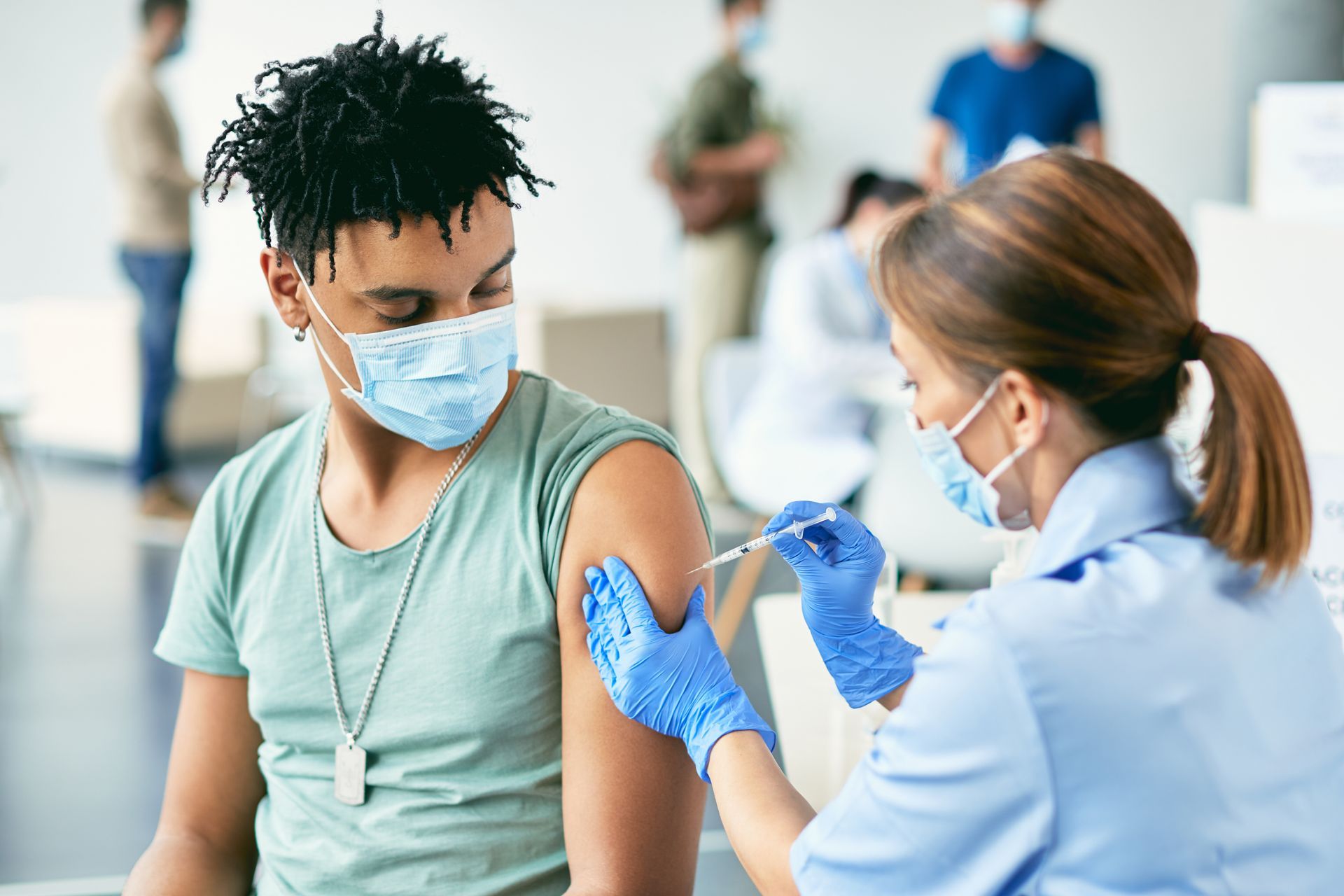Common Immunizations for Adults

While vaccine schedules are usually associated with children, there are in fact many important vaccines available to adults. There’s a diverse variety of use cases for these vaccines, with some being beneficial on a yearly basis while others are more age specific or designed primarily for adults who never got the childhood version of the vaccine.
Influenza Vaccine
The flu shot (influenza vaccine) is maybe the most prominent on the list of adult vaccines because doctors, pharmacists and other health care advocates hammer adults with “get your flu shot” messaging in the early fall months every year. The flu is one of those persistent viruses that is not at all static, meaning it evolves constantly and there are often multiple variations in circulation at all times. The annual flu shot is generally custom made each year specifically to combat the most prominent influenza variation at the time. While the flu shot might not protect against every variation of influenza, it does provide significantly enhanced protection against the variant you’re most likely to encounter. Even if you do end up catching the flu, having received an influenza vaccination recently should result in a much milder illness.
The Tdap
The Tetanus, Diphtheria and Pertussis vaccination, more commonly referred to as “the Tdap”, is one of those vaccinations that you receive as a child and, ideally, periodically as an adult. The normal schedule is for everyone to begin receiving the Tdap starting at ages 11 or 12, or a booster at 11 or 12 if the child received their initial dose at seven, eight or nine years of age. Pregnant women should also receive a Tdap during their third trimester, as well as adults who may come into contact with babies under a year old.
Shingles Vaccine
Shingles (Herpes Zoster), caused by the same virus responsible for chickenpox, can be excruciating. Adults 50 years and older are recommended to get the shingles vaccine to prevent this painful rash and its potential complications.
Pneumococcal Vaccine
This vaccine is primarily administered to seniors over the age of 65, although high-risk individuals and those with certain chronic health conditions, particularly respiratory disease, may benefit from receiving the shot between the ages of 19 and 65. Although the pneumococcal vaccine is not an annual injection, your doctor may recommend revaccination every five to 10 years. Talk with your doctor about the pneumococcal vaccine if you believe you’re at risk or suspect you are due for a booster.
HPV Vaccine
The Human Papillomavirus (HPV) is by far the most prevalent STI in the United States. As of 2018, there were an estimated 43 million HPV infections across the country. Some studies suggest nearly 80 percent of women will contract some form of HPV in their lifetime. What’s dangerous about HPV aren’t its symptoms. Although it can potentially cause genital warts, HPV symptoms are typically nonexistent for most sufferers. The danger is due to the greatly increased cervical cancer risk that accompanies HPV.
Routine HPV vaccination should begin in childhood at the age of 11 or 12, with varying dose schedules based on when the recipient receives their first dose. One of the common issues with the HPV vaccine is the perception that it enables safe sexual activity, leading some parents to avoid having their child vaccinated. It is best not to think of HPV in that context and instead view it solely as an important preventative measure to keep you and your family safe.
Hepatitis A and B Vaccines
Hepatitis A and B can potentially lead to serious and even fatal chronic liver diseases. Hepatitis A is typically contracted through contaminated water or food, while Hepatitis B is often acquired via blood or body fluids from a carrier.
The Hepatitis A and B vaccines for adults are most important for those who never received the vaccines as a child. If you received the vaccines as a child, you shouldn’t need a booster or additional vaccination (the exception potentially being adults with compromised immune systems).
Meningococcal Vaccine
Young adults, especially those living in communal settings, should receive a vaccine to protect against bacterial meningitis. Children should already receive the vaccine at 11 or 12, but a booster may be recommended by your pediatrician at 16. Be sure to discuss scheduling recommendations with your doctor.
Measles, Mumps, and Rubella (MMR) Vaccine
The MMR has been a standard part of the childhood vaccine schedule for the better part of a century, but older adults who were born after 1957 may not have received one. If you haven’t had your MMR vaccine yet, you should discuss it with your physician.
Varicella Vaccine
Millennials are largely the last generation to have suffered through the chickenpox, as long as parents stick with currently recommended vaccine schedules. If you were lucky enough to make it through childhood without getting chickenpox and you haven’t received the chickenpox vaccine yet, you should strongly consider getting one. Although the disease is uncomfortable for children, it typically doesn’t result in severe, life threatening symptoms. It can be a serious illness if you contract the disease as an adult.
Travel Vaccines
One of the more common vaccines adults receive are travel vaccines, which are specifically designed for adults who are traveling internationally and may be exposed to region specific illnesses like Yellow Fever, Typhoid or Japanese Encephalitis. Be sure to talk with your doctor about travel vaccines if you are planning to take any international trips in the near future.
Get Your Vaccines in Houston from St. Hope Pharmacy
Are you or your children in need of your annual flu shot or other adult vaccines? Visit your nearest St. Hope Pharmacy or contact us online.


